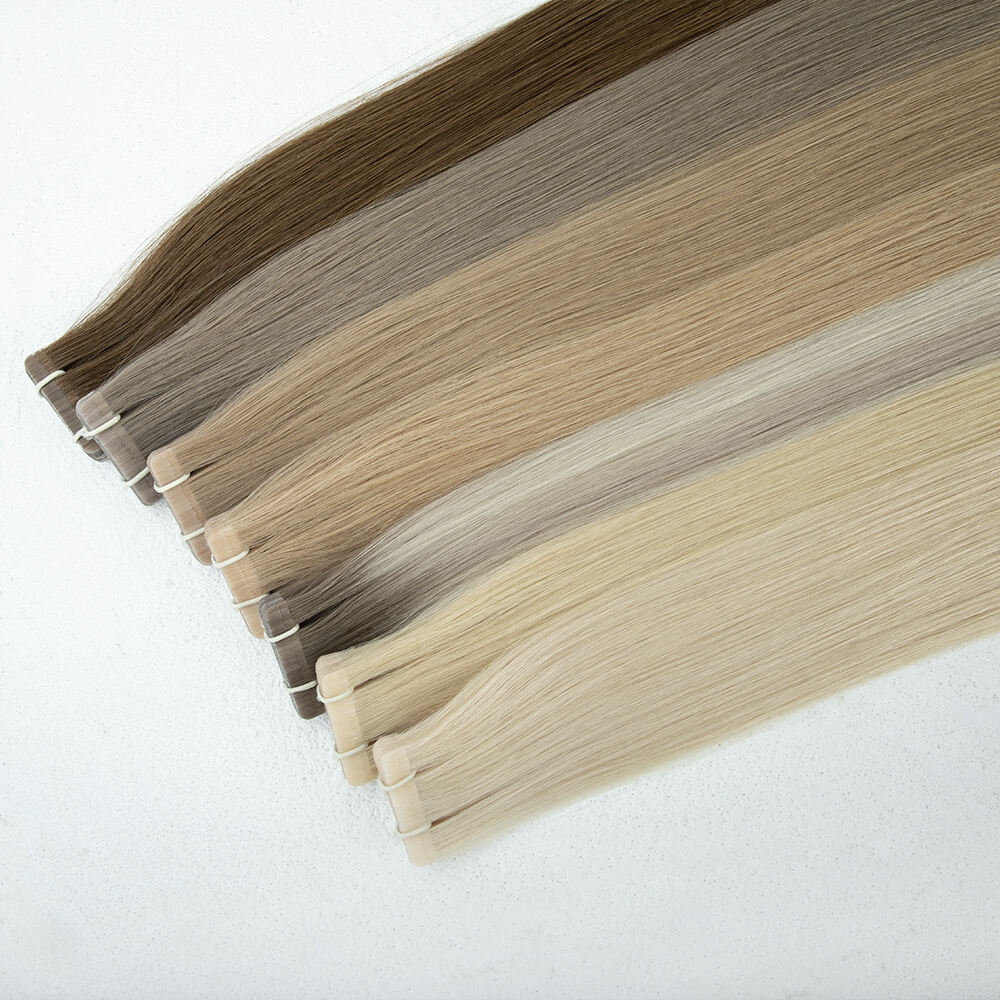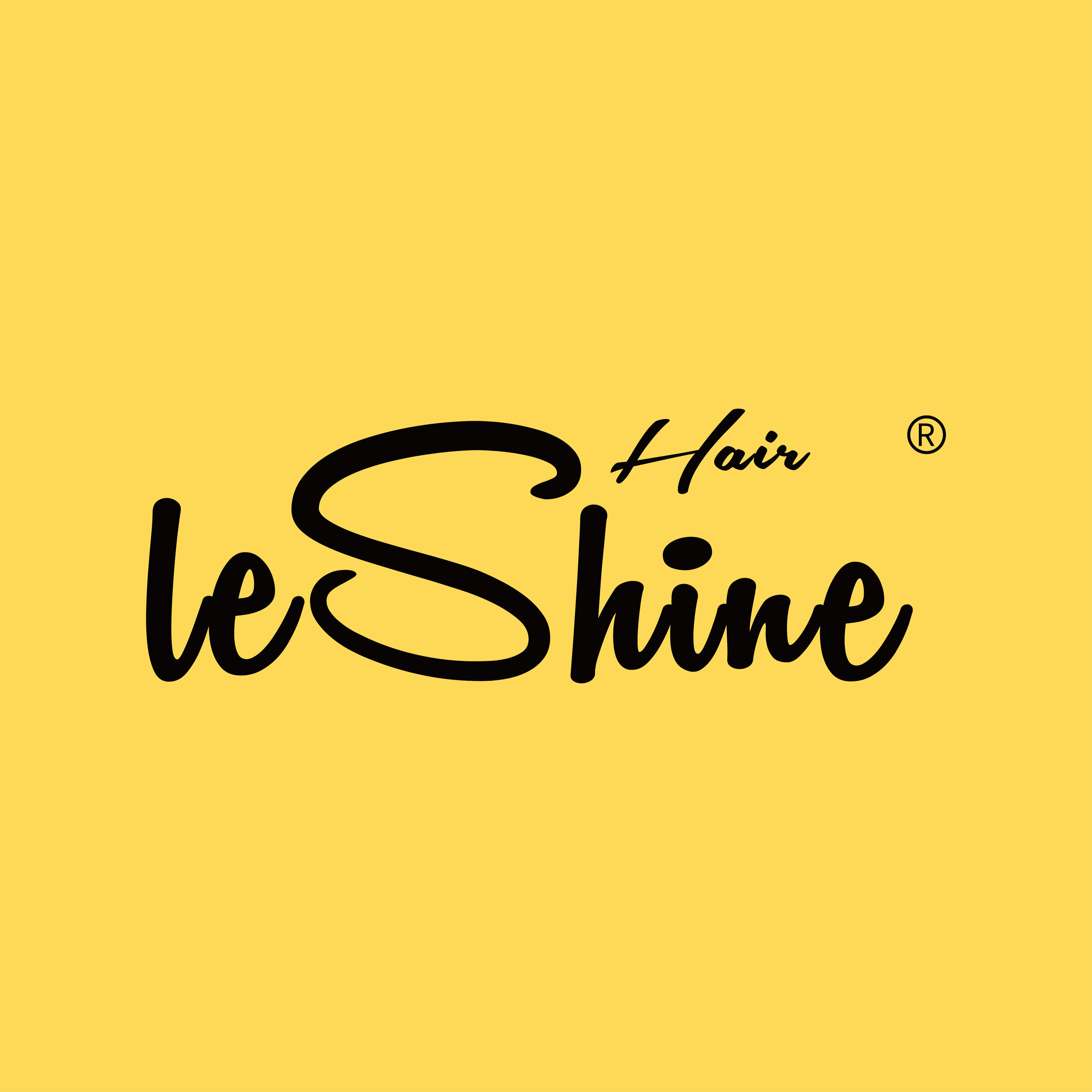
Understanding Scalp Sensitivity and the Genius Weft Solution
What Causes Scalp Sensitivity During Hair Extension Wear?
Around two thirds of people who wear hair extensions experience some kind of scalp sensitivity, based on findings from a recent trichology study conducted in 2023. The main culprits? Friction problems often come from heavier installation techniques involving glue or clip-ons, plus when weight isn't spread evenly across the head. Follicles get stressed out too when there's constant tension applied over time. All these pressures can result in inflamed skin, persistent itching sensations, and even traction alopecia. This particular issue happens when hair is pulled too tightly for extended periods, affecting roughly one out of every five extension wearers within just half a year. Things get worse when environmental conditions factor in. Sweat accumulation combined with strong chemical treatments only makes the irritation worse, setting off what many describe as an endless loop of discomfort.
How Genius Weft Hair Extensions Address Common Scalp Issues
Genius weft hair extensions resolve key pain points through innovative design:
| Feature | Traditional Extensions | Genius Wefts |
|---|---|---|
| Weight per weft | 15-20 grams | 8-12 grams |
| Material contact points | 20-30 adhesive bonds | 4-6 silicone-lined beads |
| Scalp pressure | 2.1 psi (average) | 0.7 psi |
A 2024 hair extension materials study found this lightweight construction reduces scalp tension by 63% compared to machine-made wefts. The breathable bead installation allows natural airflow, while hypoallergenic silicone buffers prevent metal-induced rashes reported by 42% of sensitive-scalp users in clinical trials.
The Link Between Extension Weight and Scalp Tension
Each extra gram added to hair extensions actually raises pressure on the scalp by around 0.03 psi, which matters a lot for people who already have sensitive scalps. The Genius Weft system tackles this problem through their special tapered design that gets rid of those annoying bulk stitch areas. What makes these different is how they spread out the weight over about 40 percent more space compared to regular wefts. Tests done last year showed this cuts down on pressure spots by roughly 80 something percent. When paired with those high quality bead covers rated for medical use, there's much less chance of tiny tears forming during installation. These little tears are what causes most of the discomfort problems folks report when getting traditional extensions put in.
Lightweight Design and Hypoallergenic Materials for Comfort
Innovations in Lightweight Hair Extensions to Reduce Scalp Tension
Genius weft hair extensions use advanced polymers and silk-protein blends that weigh 30% less than traditional methods. This reduces scalp tension by distributing weight evenly along the natural growth pattern, decreasing pressure points by up to 58% (Haircare Technology Institute 2023).
Breathability and Natural Movement of Genius Wefts on Sensitive Scalps
The open-weave construction mimics natural hair’s airflow, preventing heat and moisture buildup that aggravates irritation. Scalp health surveys show 83% of users report improved comfort during extended wear compared to solid-weft alternatives. Flexible stitching allows the extensions to move naturally, eliminating the “pulling†sensation associated with rigid attachment systems.
Hypoallergenic Materials in Genius Weft Construction
The extensions are built using medical grade silicone beads along with nickel free alloys, and instead of relying on synthetic glues, they use organic cotton threads for assembly. Recent research published in 2024 suggests that switching to these materials cuts down allergic responses by around 72 percent among people who react badly to fragrances or metals. We also incorporate bamboo based fibers into the base weave which naturally resists bacteria growth. This helps keep sensitive scalps safe from infections and other skin issues caused by microbes.
Gentle Beaded Weft Installation for Minimal Scalp Irritation
Genius weft hair extensions prioritize scalp comfort through beaded installation methods that reduce irritation by 72% compared to traditional adhesive-based techniques (Scalp Health Institute 2024). This approach combines precision engineering with dermatologist-approved practices to support healthy hair follicles.
Why the Beaded Weft Installation Technique Minimizes Irritation
Bead and clamp systems keep hair extensions in place without needing glue or heat, things that can really irritate the scalp over time. These little silicone lined beads spread out the weight so none of it sits too heavily on any one spot near the roots, something that happens a lot with those traditional sew in wefts or glued ones. Some studies have actually found that people who maintain their bead systems properly see about a 34 percent drop in problems related to traction alopecia according to research published last year in the Journal of Cosmetic Dermatology.
Microbead Extensions as a Non-Irritating Hair Extension Method
Microbead technology features slide-and-lock mechanisms for adjustable tension control, enabling wearers to:
- Rebalance weight distribution as natural hair grows
- Prevent constant pulling at hair roots
- Maintain airflow between wefts and scalp
Professional adjustments every 6–8 weeks optimize bead placement, with 89% of users reporting "no detectable tension" during longitudinal comfort studies (International Hair Prosthetics Council 2024).
Comparison Between Hand-Sewn and Machine-Made Wefts for Scalp Safety
| Feature | Hand-Sewn Wefts | Machine-Made Wefts |
|---|---|---|
| Edge Precision | 0.2mm seam tolerance | 1.5mm average variance |
| Tension per Attachment | 0.8-1.2g | 1.5-2.8g |
| Scalp Contact Surface | 12-point distributed | 6-point concentrated |
Hand-crafted construction allows customized strand grouping that matches natural hair density patterns, reducing peak tension forces by 40% compared to bulk-produced alternatives (2023 Hair Extension Safety Report). As noted in minimalist hair extension guides, this precision eliminates the rigid edges and uneven weight distribution that frequently irritate sensitive scalps.
Customizing Genius Weft Applications for Individual Scalp Needs
Tailoring Genius Weft Placement to Prevent Pressure Points
Weft application techniques have shown real flexibility, according to recent data where around two thirds of people who tried them noticed better comfort levels when the placement matched their actual scalp shape (Hair Wellness Survey 2023). Skilled stylists know exactly where to put these wefts so they don't sit on sensitive areas at the top of the head or along the hairline, which helps spread out the weight more naturally. The custom fitting makes all the difference too many clients report feeling significantly less pressure than with regular installs, something that matters a lot for long term wear. Plus, this method works much better with how hair grows naturally over time rather than fighting against it.
Benefits of Hand-Sewn Wefts for Enhanced Comfort and Fit
Hand-sewn genius wefts offer superior customization, allowing precise adjustments to hair density and weft width. Unlike rigid machine-made versions, they conform smoothly to curved scalp surfaces without creating friction ridges. The manual process enables stylists to:
- Eliminate bulky seams that irritate sensitive skin
- Match weft thickness to individual hair textures
- Create graduated layers that mimic natural volume
This tailored design reduces scalp indentations by 29%, according to clinical friction studies using pressure sensors, while maintaining secure attachment.
Maintaining Scalp Health While Wearing Genius Weft Hair Extensions
Essential Scalp Care Routine for Hair Extension Wearers
A consistent care routine prevents irritation and preserves both natural hair and extensions. Key practices include:
- Washing every 7–10 days with sulfate-free shampoo to maintain moisture balance
- Gently detangling with a wide-tooth comb from roots to ends
- Limiting heat styling to temperatures below 300°F to prevent keratin damage
- Scheduling professional adjustments every 6–8 weeks
Following this regimen reduces scalp inflammation risks by 63% compared to irregular care, according to updated hair extension maintenance guidelines.
Importance of a Healthy Scalp When Using Genius Weft Hair Extensions
Genius weft hair extensions are designed to be light and airy, which means they put less pressure on the hair follicles and let air circulate properly around the scalp. Traditional extension methods often get sweat and dirt trapped against the skin, but these extensions have a special bead system that actually creates little air pockets. According to research from the 2023 Scalp Biome Study, this setup cuts down on dandruff problems and bad bacteria growth by about 41%. The way these extensions sit on the head helps keep the natural hair growing cycle going normally without all the irritation that comes from regular extensions rubbing against the scalp or pulling too hard because they're so heavy.
FAQs
- What makes Genius Weft hair extensions different from traditional extensions? Genius Weft hair extensions are lighter, use hypoallergenic materials, and have a unique beaded installation method to minimize scalp irritation and tension.
- How do Genius Wefts help reduce scalp tension? By redistributing weight evenly and using materials like silicone beads, the Genius Weft system significantly reduces pressure points on the scalp.
- What materials are used in Genius Weft hair extensions? They use advanced polymers, silk-protein blends, medical grade silicone beads, nickel free alloys, organic cotton threads, and bamboo-based fibers.
- Are Genius Weft installations customizable for different scalp needs? Yes, they can be tailored to match individual scalp shapes and hair density, reducing pressure and enhancing comfort.
- What care routine is recommended for maintaining scalp health with these extensions? Regular washing with sulfate-free shampoo, gentle detangling, limiting heat styling, and professional readjustments are advised for optimal scalp health.
Table of Contents
- Understanding Scalp Sensitivity and the Genius Weft Solution
- Lightweight Design and Hypoallergenic Materials for Comfort
- Gentle Beaded Weft Installation for Minimal Scalp Irritation
- Customizing Genius Weft Applications for Individual Scalp Needs
- Maintaining Scalp Health While Wearing Genius Weft Hair Extensions




